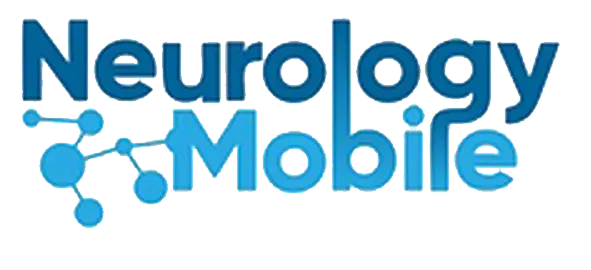4 min read
Understanding Alzheimer's Disease: Symptoms and Causes

Alzheimer’s disease is a condition that affects many people around the world, leading to memory loss and cognitive decline. But what causes this disease, and how can you recognize its symptoms? This blog post will explore these questions, providing valuable information for anyone looking to understand more about Alzheimer’s disease.
What is Alzheimer’s Disease?
Alzheimer’s disease, as a progressive neurological disorder, not only leads to the significant shrinkage of the brain and the death of brain cells but also marks a profound impact on the lives of those affected and their families. It stands as the most prevalent cause of dementia, heralding a gradual yet relentless erosion of cognitive functions, emotional well-being, and social skills. The journey through Alzheimer’s disease is one of navigating through a fog of memory loss, confusion, and the eventual inability to carry out the simplest tasks independently.
The Mysterious Origins of Alzheimer’s Disease
The quest to fully understand the origins of Alzheimer’s disease continues to challenge the global scientific community. Despite the veil of mystery that surrounds its exact cause, research has illuminated several risk factors that play significant roles in its onset. Aging is the most prominent of these factors, with the risk of developing Alzheimer’s increasing significantly as one grows older. Beyond the age of 65, the risk of being diagnosed with this disease doubles approximately every five years, highlighting a direct correlation between aging and the risk of Alzheimer’s.
Family history and genetics are other crucial factors that influence the likelihood of developing Alzheimer’s. Individuals with a parent or sibling diagnosed with the condition are at a higher risk. This risk escalates if more than one family member has the illness, suggesting a genetic predisposition to the disease. Researchers have identified specific genes associated with Alzheimer’s, which contribute to the early-onset form of the disease. Although less common, early-onset Alzheimer’s can be particularly devastating, affecting individuals as young as in their 30s or 40s.
The complexity of Alzheimer’s disease extends to its pathological development within the brain. The disease is characterized by the accumulation of two types of proteins: beta-amyloid plaques and tau tangles. Beta-amyloid is a fragment of a larger protein that, when abnormal, clumps together to form plaques that disrupt cell function. Tau protein, on the other hand, forms tangles inside neurons, hindering the transport of nutrients and other essential molecules. Together, these disruptions contribute to the characteristic symptoms of Alzheimer’s disease.
Despite the significant strides made in understanding the risk factors and the biological underpinnings of Alzheimer’s, much remains unknown. The interplay of genetic, lifestyle, and environmental factors suggests a multifaceted approach to both the prevention and management of the disease. Researchers are also exploring the role of inflammation and the immune system in Alzheimer’s progression, opening new avenues for potential treatments.
As science marches forward in its quest to unravel the mysteries of Alzheimer’s disease, the focus remains on developing more effective treatments and ultimately, a cure. In the meantime, supporting those affected by Alzheimer’s through compassionate care, comprehensive management strategies, and fostering a deeper understanding of the disease remains paramount. By shedding light on the mysterious origins and progression of Alzheimer’s, we pave the way for a future where this disease no longer robs individuals of their memories, their independence, and their very selves.
Recognizing the Symptoms of Alzheimer’s Disease
The symptoms of Alzheimer’s disease can be subtle at first, but they become more pronounced over time. Early signs include difficulty remembering recent conversations or events, misplacing items, and challenges in planning or solving problems. As the disease progresses, individuals may experience severe memory impairment, confusion about time or place, and changes in mood or behavior.
Memory Loss That Disrupts Daily Life
One of the hallmark symptoms of Alzheimer’s disease is significant memory loss. This isn’t just forgetting names or appointments now and then; it’s memory loss that seriously affects one’s daily activities. For instance, someone with Alzheimer’s might ask the same questions over and over, forgetting that they’ve already been answered.
Difficulty Completing Familiar Tasks
People with Alzheimer’s often find it hard to complete daily tasks that used to be routine. This could involve challenges with driving to a familiar location, managing a budget at work, or remembering the rules of a favorite game.
Confusion with Time or Place
Losing track of dates, seasons, and the passage of time is common in the later stages of Alzheimer’s. People with Alzheimer’s can become confused about where they are or how they got there.
Changes in Mood and Personality
In addition to memory loss and cognitive difficulties, Alzheimer’s disease can lead to noticeable changes in mood and personality. Individuals may exhibit increased irritability, aggression, or apathy, which can be distressing for both the person experiencing them and their loved ones. Depression and social withdrawal are also common, as people with Alzheimer’s might feel overwhelmed by their changing abilities and environments. Recognizing these emotional and psychological changes is vital, as they not only affect the quality of life but can also offer clues for early diagnosis and intervention.
Communication Challenges
As Alzheimer’s disease progresses, communication becomes a challenge. Individuals may struggle to find the right words, repeat phrases or conversations, or invent new words to describe familiar objects. This deterioration in language skills can lead to frustration and social isolation. The ability to follow or participate in conversations declines, making interactions more challenging for both the person with Alzheimer’s and those around them.
Disorientation and Wandering
Disorientation, a common symptom in the middle to late stages of Alzheimer’s, can lead to wandering. People with Alzheimer’s may walk aimlessly, often searching for a place or thing they believe is missing. This behavior can be dangerous, as it may lead to falls, injuries, or getting lost. Family members and caregivers need to be vigilant and consider safety measures to protect individuals from potential harm associated with wandering.
Decline in Judgment and Decision-Making
Alzheimer’s disease affects an individual’s ability to make decisions and judge situations appropriately. This decline can manifest in poor financial decisions, neglect of personal hygiene, or an inability to recognize safety hazards. As judgment and decision-making skills deteriorate, the need for supervision and support increases to ensure the individual’s safety and well-being.
Trouble Understanding Visual Images and Spatial Relationships
Some people with Alzheimer’s experience difficulties in visual and spatial awareness. This can include trouble reading, judging distance, and determining color or contrast, which can affect driving skills. Problems with depth perception may also increase the risk of falls.
Increased Dependence
As the disease progresses, individuals with Alzheimer’s become increasingly reliant on others for their care. Activities of daily living, including dressing, bathing, and eating, become challenging tasks that they can no longer manage independently. This increased dependence can be emotionally and physically taxing for caregivers, underscoring the importance of seeking support and resources for both parties.
Early Diagnosis and Support
Early recognition of the symptoms of Alzheimer’s disease is essential for accessing treatments that can help slow the progression of symptoms, improving the quality of life for those affected. Supportive care, environmental modifications, and therapeutic interventions can all play a role in managing the disease. Moreover, support groups and counseling can provide emotional support and practical advice for individuals and families navigating the complexities of Alzheimer’s disease.
The Path Forward: Living with Alzheimer’s Disease
While there is currently no cure for Alzheimer’s disease, there are treatments available that can help manage symptoms. Medications can help lessen or stabilize symptoms for a limited time. Additionally, lifestyle changes, such as regular exercise and a healthy diet, can also help manage the disease’s progression.
Understanding Alzheimer’s disease is the first step in managing its impact on lives. By recognizing the symptoms early and seeking professional advice, individuals and their families can find ways to cope with the disease and improve their quality of life.
In conclusion, while Alzheimer’s disease presents significant challenges, understanding its symptoms and causes can empower individuals and their families. By staying informed and proactive in managing health, it’s possible to navigate the complexities of Alzheimer’s with strength and resilience.

